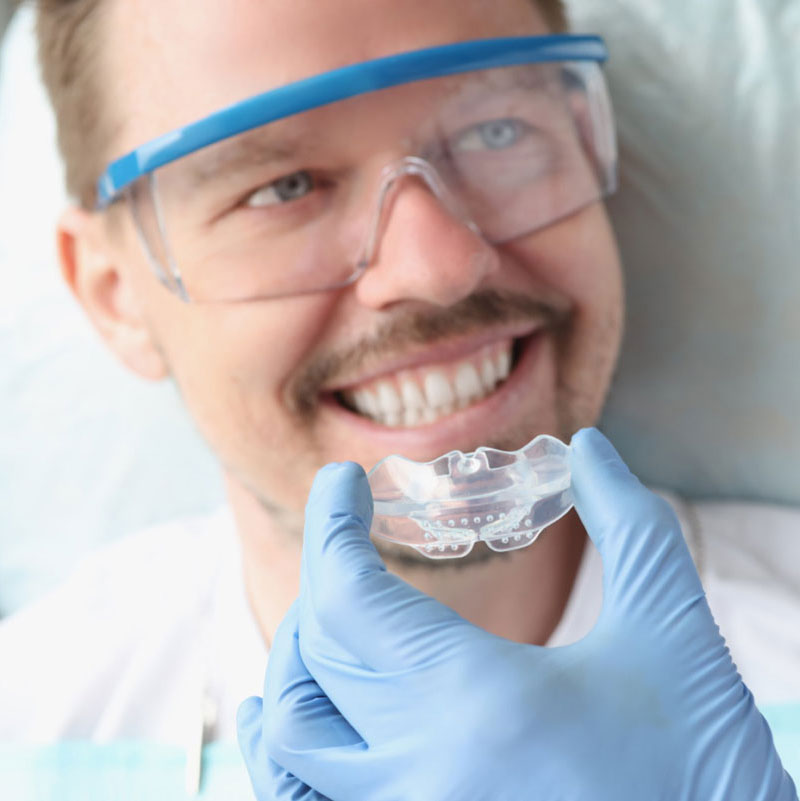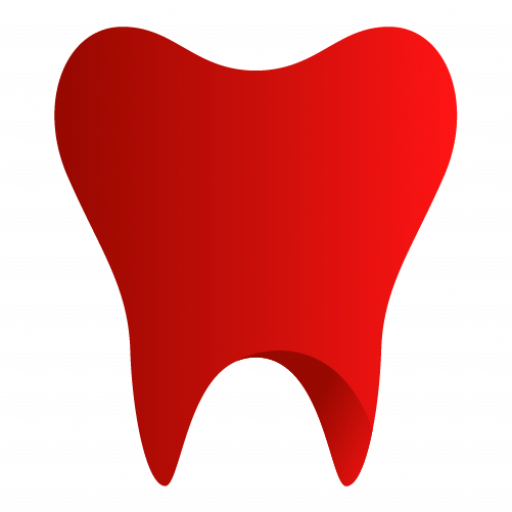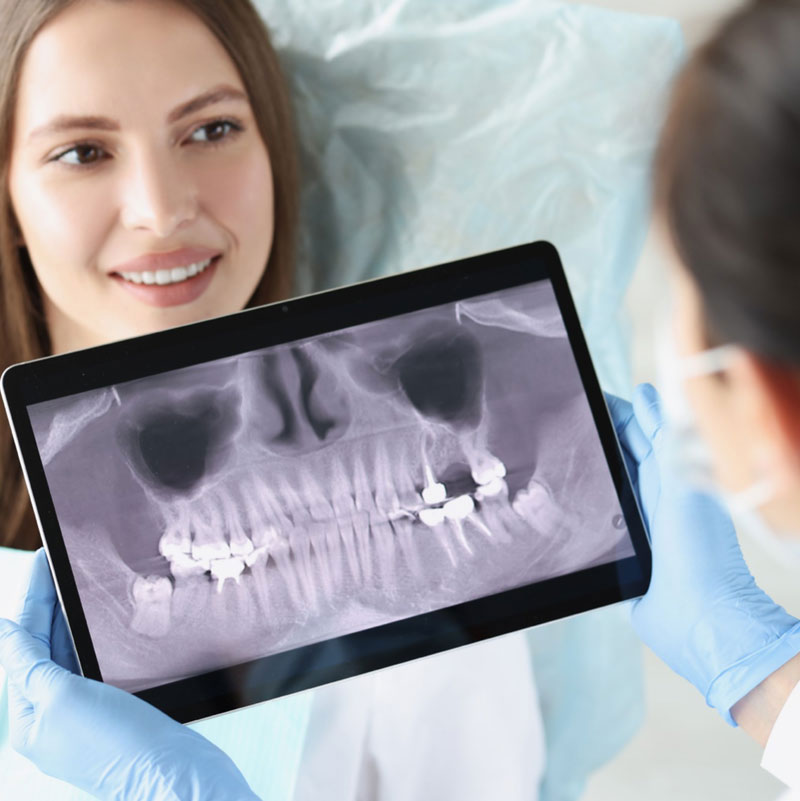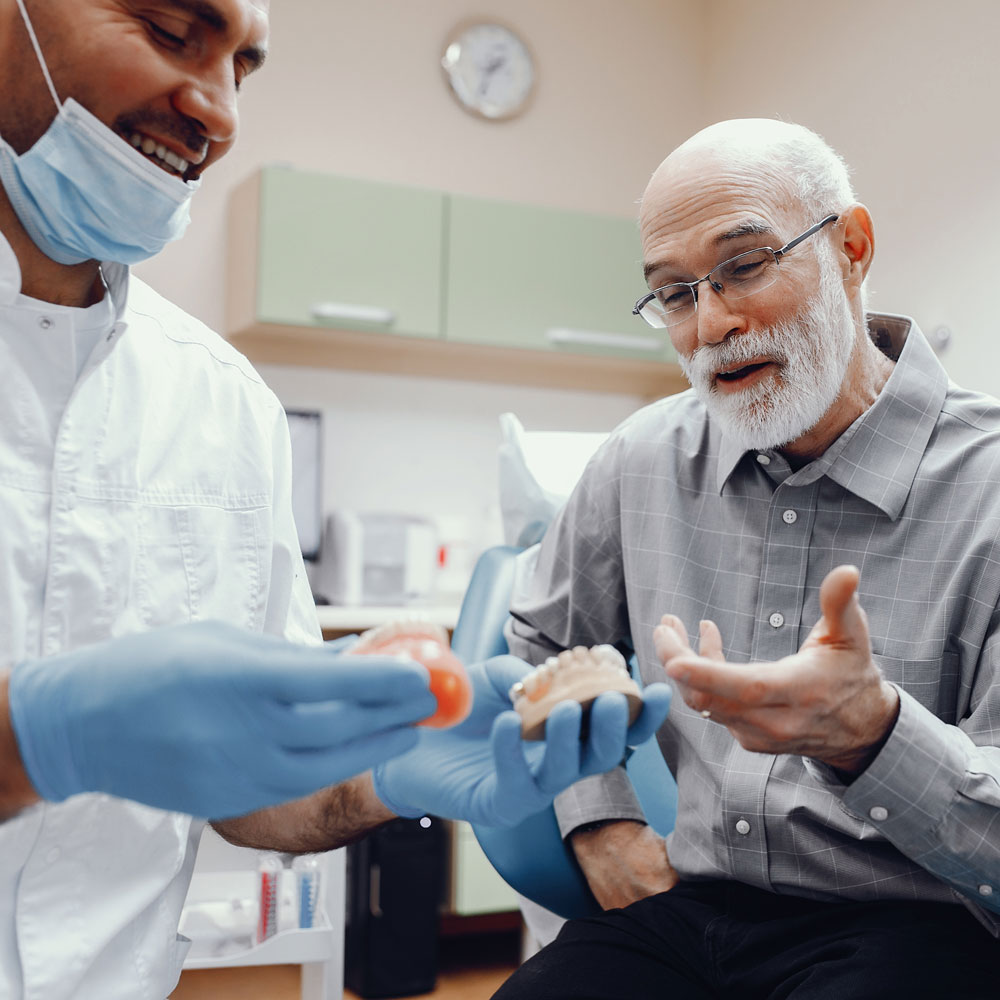
What is traumatic occlusion?
Occlusion is the way our upper and lower teeth come in contact or close during oral functions like chewing or resting. Occlusal forces are the forces generated when our upper and lower teeth come in contact. Typically these occlusive forces are distributed evenly and sustained by the periodontal ligament, which supports and adheres the tooth to the jawbone.
However, in some oral conditions like malaligned teeth, dental diseases, or faulty dental prosthesis and fillings, the way the opposing teeth come in contact can change, disturbing the occlusion. This change in occlusion leads to repeated injury to the periodontal ligament and the surrounding structure of the tooth. Continuous trauma to these teeth surrounding structures does not allow them to heal, and such an occlusion that leads to constant trauma is known as traumatic occlusion.
Trauma from occlusion must be diagnosed and treated to prevent permanent injury to the mouth and loss of function.
Types of occlusal trauma
Traumatic occlusion can be acute or chronic and primary or secondary.

Acute trauma from occlusion
Acute trauma from occlusion can happen due to abrupt traumatic impact such as biting down on a hard object. It can also be due to faulty dental restorations and prostheses such as crowns or dentures that change the direction of occlusal forces. The surrounding structures can heal and go back to normal by correcting the factors leading to traumatic occlusion.

Chronic trauma from occlusion
As the name suggests, when the surrounding structures of the teeth (periodontium) suffer constant and long term trauma due to distorted occlusion, the injury exacerbates and becomes more significant. Chronic trauma from occlusion is more common and occurs gradually.

Primary trauma from occlusion
Primary trauma from occlusion happens when the injury is due to a changed or altered heavy occlusive forces.

Secondary trauma from occlusion
Secondary trauma from occlusion results from a reduced ability of the surrounding tissues of the teeth to resist or bear regular occlusal forces. The surrounding tissues can become weak due to gums diseases and bone loss. This makes the periodontium vulnerable to even regular occlusal forces.
Causes of traumatic occlusion
Trauma from occlusion can be due to a variety of reasons like:
- Biting down on a hard substance.
- Faulty dental restorations.
- Ill-fitted dentures.
- Bruxism commonly known as teeth grinding or clenching.
- Gum diseases.
Symptoms of traumatic occlusion
Trauma from occlusion can manifest in various ways and can lead to multiple symptoms. Generalised symptoms of trauma from occlusion include:
- Generalised traumatic occlusion causes severe attrition. The teeth wear off, and you will notice that the height of the teeth has reduced over time.
- The cusps on the biting surface of back teeth (molars and premolars) flatten out.
- Occlusal facets can be seen on the biting surface of the teeth.
- Fremitus.
- The teeth become tender, and there is pain in chewing or biting.
- Trauma from occlusion leads to wearing off of the enamel and exposes the dentine of the tooth, which can lead to teeth sensitivity. This can lead to pain and sensitivity to cold or hot foods and liquids.
- Trauma from occlusion destroys the reparative capacity of the periodontium, which can cause bone destruction around the teeth and lead to loose teeth.
- The teeth tend to move or drift in the mouth.
- The upper front teeth are susceptible to flaring.

Diagnosing trauma from occlusion
Various factors have to be taken into consideration while diagnosing traumatic occlusion. During your appointment at our dental clinic, our dentist will conduct a thorough dental examination. They will check for signs and symptoms of trauma from occlusion and factors contributing to it. For example, they will check if you have any gum disease or dental diseases contributing to it. Apart from this, they may take some x-rays to look for radiographic signs that can suggest trauma from occlusion. Trauma from occlusion is known to cause widening of the periodontal ligament and bone resorption.
Our dentist will also ask you some questions with regards to your medical and personal history. This information helps them form a proper conclusion and also aids in the appropriate treatment protocol.

Treating trauma from occlusion
Treatment for traumatic occlusion depends on the factors which are contributing to it. For example, if gum diseases lead to traumatic occlusion, our dentist may suggest complete dental cleaning and, first, treat the gum disease.
If the reason for your traumatic occlusion is faulty dental restorations or prosthesis, they will recommend you get it changed. The offending dental filling will be removed and replaced with a newer one which eliminates the high points. In addition, the dentures or crowns will have to be remade to ensure that you have a proper bite.
If you have tooth mobility, they may use dental wires to splint your teeth together for some time and give the soft tissues adequate time to heal.
Mouthguards will be advised in cases where the reason for traumatic occlusion is teeth grinding (Bruxism). Mouthguards prevent the upper and lower teeth from coming in contact while you sleep and thus prevents further damage to teeth and gums.

Complications of untreated trauma from occlusion
Trauma from occlusion has a devasting effect on the structure of your teeth and gums. Moreover, it can compromise functions like chewing and talking and also changes your smile. Therefore, it requires prompt treatment by an experienced dentist.
Untreated trauma from occlusion can lead to loose teeth and eventual teeth loss. It can cause persistent pain and discomfort in your mouth. It can also lead to headaches. A bad bite and constant injury make you susceptible to temporomandibular (jaw joint) disorders.
It, therefore, becomes imperative that you schedule an emergency appointment at our clinic the moment you notice any symptoms of traumatic occlusion. Reach out to us if you have any more questions or would like to know more about our services. Our team will be there to assist you in your journey to better oral and overall health.
